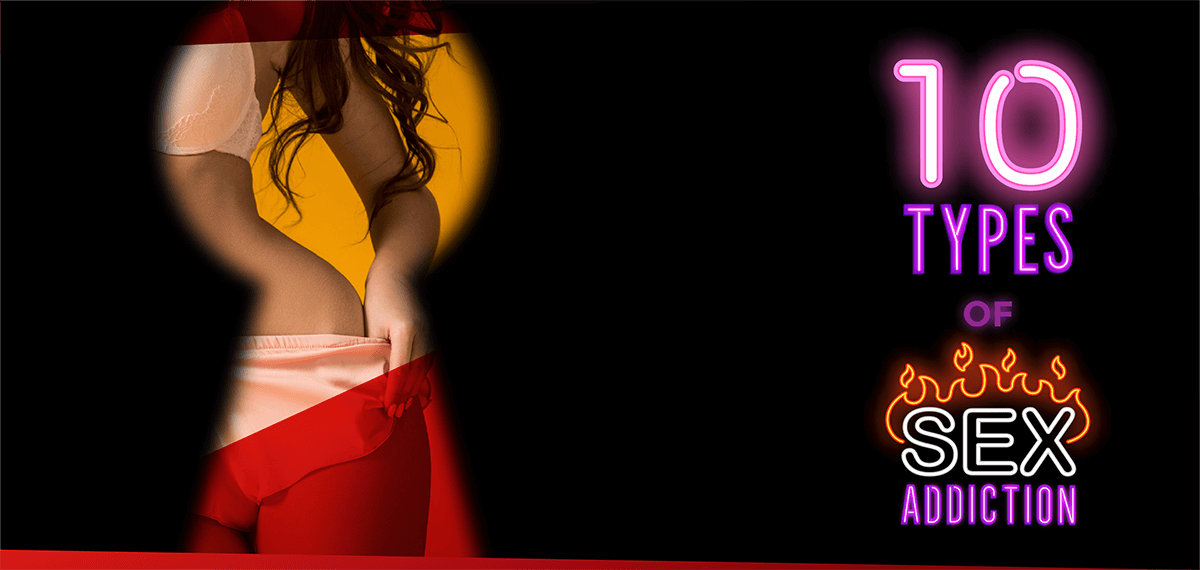More and more people are coming out with and seeking treatment for sexual dependency. Are evolving genes to blame? Social media influences? Too much access or not enough? Read on to find out what some of the causes of sex addiction are and what to do if you think you are suffering from sex addiction.
1. Biology
The role of genetics in addiction is a topic of debate, but when it comes to sex addiction it seems that genetic predisposition could play a role. Research has shown that genetic predisposition to emotional dysregulation, impulsivity, or pleasure-seeking behaviour may lead individuals to be more likely to form unhealthy attachments and use sex in a self-serving way. Other traits that are commonly associated with sexual addiction such as anxiety or depression are thought to be genetically inherited as well.
Hormone levels is another factor that may increase one’s likelihood of sex addiction. Higher levels of sex hormones like testosterone or oestrogen can affect your libido, or sexual drive. If you are genetically inclined to impulsive behaviour and also have high levels of sex-related hormones, you would be far more likely to engage in repeated sexual activity.
2. Psychology
Apart from the bare biology, your psychological makeup, shaped largely by childhood experiences such as traumas, etc. also plays a key role in your attitudes towards sex and the likelihood of developing a sex addiction. As mentioned above, mental health disorders like anxiety, depression, personality disorders, or poor impulse control are common among sex addicts and seem to instigate or at least propel the addiction.
More specifically, those that have been diagnosed with bipolar disorder and therefore have a tendency toward manic states, are also much more likely to engage in frequent sexual activity without fear or knowledge of unhealthy consequences. Individuals who have experience sexual abuse or trauma are also much more likely to develop unhealthy ideas around sex.
3. Society
As an increasing number of people are reporting sex addiction in recent years, one might conclude that a large factor in sex addiction is society – exposure, evolving morals, greater acceptability of sex and sexual experimentation, etc. Social media surely plays a large part in our exposure or normalisation of sexual behaviours that may have previously been considered taboo. In some ways this is seen as a positive – providing a sense of liberation and openness in society. However, the flip side of this is that deviant or unhealthy behaviours can often be glorified. Teenagers and sexually suppressed individuals are particularly vulnerable to this type of sexual advertising.
Although social media is intended to be a way for people to connect, in reality, the overuse of social media and bombardment of media and advertising in general can actually be quite isolating. Social isolation increase one’s likelihood of seeking inappropriate means of sexual gratification and can also lead to other problems like depression or unhealthy sex behaviours. With apps like the ever popular Tinder, rejection in relationships and via social media can also lead to depression and cause individuals to seek out instant or shallow sexual gratification.
4. Sex Addiction VS Drug Addiction
Drug addiction and sex addiction have similar effects on the brain by stimulating the brain’s pleasure and reward system through the chemical release of dopamine. On a biological level, sex satisfies a person’s need to reproduce and therefore in order to promote the act of sex, the body has been trained to rewards itself with pleasure.
Sex addiction can develop much like drug addiction as the result of an unnatural overproduction of dopamine, and subsequently endorphins. When dopamine levels are propelled too high and too rapidly, the brain and body will continue to seek out ways to mimic these same highs, but without much avail.
As the addiction develops and intensifies, sex addicts will need to have more sex, experiment with different partners or sexual acts, or even engage in high-risk, compulsive sexual behaviours in order to continue to get high. Just as with drug addicts in denial, many sex addicts believe that they are in control of their behaviours even though they have developed an unhealthy dependence.
A few signs of sexual dependency include:
- Development of withdrawal symptoms like irritability, craving, depression, guilt or shame
- Experiencing loss of control around sexual activity
- Continued participation in sexual activity despite negative consequences such as decaying relationships, absenteeism, or health or financial struggles
There is a significant correlation between sexual addiction and substance use disorders. An estimated 40-64% of sex addicts also have a substance abuse disorder, alcohol abuse being the most common co-occurring disorder.
Inpatient Sex Addiction Treatment at The Dawn Rehab Thailand

Sex addiction is quite complex to treat since staying abstinent is not a likely or desired route for the majority of sex addicts. As discussed above, triggers are also extremely difficult to avoid since we are surrounded by messages and images regarding sex on a daily basis. Treatment for sexual dependency therefore is most commonly framed upon identifying the issues and potential underlying causes, treating those issues, and replacing unhealthy addictive behaviour with healthy sexual behaviour.
The Dawn Rehab in Chiang Mai, Thailand, is one of the premier sex rehab centres in Asia that is equipped to handle sex addiction on a holistic level. The Dawn’s addiction treatment programme is designed to help clients combat their sex addiction through a personalised treatment plan integrating a balance between rehab, wellness, work, and relaxation.
The Dawn’s programme is based on a Twin Pillar approach. The first pillar focuses on rehabilitation and gives our clients the tools that are needed to overcome negative behaviour. Some key components of this pillar include Cognitive Behavioural Therapy (CBT) and Mindfulness-Based Cognitive Therapy (MBCT). These brain training methods are particularly useful in treating sex addiction since this is very much about reprogramming what your brain has come to accept as normal and introducing health replacements and alternatives.
The second pillar involves a wellness programme that has been designed to provide clients with the mental strength and key tools that they need to build a better future. Since most sex addicts maintain the eventual goal to re-engage in healthy sexual activity, integration of physical exercise, mindfulness and meditation, massage and spa therapy, and healthy eating help clients to improve overall health and happiness in natural and sustainable ways as opposed to seeking fulfillment from unhealthy sexual behaviours.
For more information on sex addiction treatment at The Dawn, contact us today for a consultation.
Related Posts
 Harvey Weinstein’s Sex Addiction: An Excuse or Reality?
Harvey Weinstein claims he is suffering from sex addiction. Are you surprised? Yet another rich, influential man is receiving sex addiction counselling after over fifty women accused Weinstein of sexual...
Harvey Weinstein’s Sex Addiction: An Excuse or Reality?
Harvey Weinstein claims he is suffering from sex addiction. Are you surprised? Yet another rich, influential man is receiving sex addiction counselling after over fifty women accused Weinstein of sexual...
 The Truth about Sex Addiction: A Way to Avoid Intimacy & Real Human Connection
A common misperception about sex addiction is that it is about sex and the pursuit of sex. Many people think it’s reserved for someone with a high libido or someone...
The Truth about Sex Addiction: A Way to Avoid Intimacy & Real Human Connection
A common misperception about sex addiction is that it is about sex and the pursuit of sex. Many people think it’s reserved for someone with a high libido or someone...
 5 Facts About Sex Addiction Everyone Should Know
Even though some people use the term sex addict as an excuse for reckless sexual behaviours, there are others who actually suffer from sex addiction, which involves uncontrollable sexual impulses. A...
5 Facts About Sex Addiction Everyone Should Know
Even though some people use the term sex addict as an excuse for reckless sexual behaviours, there are others who actually suffer from sex addiction, which involves uncontrollable sexual impulses. A...
 Getting to Know the Ten Types of Sex Addiction
Defining a sex addiction is not as straightforward as you might think. Understanding the different manifestations of this disorder can help you know if you might be struggling with a...
Getting to Know the Ten Types of Sex Addiction
Defining a sex addiction is not as straightforward as you might think. Understanding the different manifestations of this disorder can help you know if you might be struggling with a...





